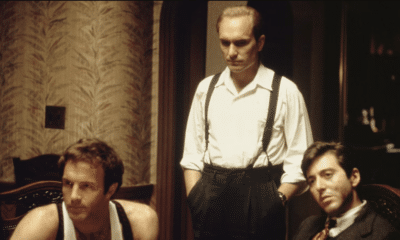Sound Plunge
Hitchhiking the History of the Folk Beat
In a culture as beautifully diverse as ours, following the path of folk as an item of sound is an intriguing affair. Folk rock was an interesting genre whose identity spawned with the fusing of simple rock n roll rhythms and western folk music or concepts such as Bob Dylan or the Beat generation. Poetry, recitals and whimsical musings were clashed together with the simple harshness of rock music to for a genre that not only displayed an array of literature, but also put it in a format accessible to the younger crowd. With a drive towards literature and the play of languages, folk rock spun out from its narrower sister genre of hard rock, and started to embrace the values of language and culture too!
Indian folk rock varies in style, language and influence and although most people think that there are only a handful of national folk rock bands, there are actually many as the definition of the genre is very different here than it would have been in America in the 60s.
There is a new kind folk rock that uses just the singer-songwriter modus operandi. Deep seated lyrics and verbally relevant time meters, coupled with a crooning guitar have culminated in a style of India folk that is, in essence, similar to the roots of international folk rock. Vedant Bharadwaj, an already well known name in indie circles, has played almost exclusively solo. Remaking some simple Kabir Dohas with a rhythm guitar backing, his album was very well received too. He is now gaining mainstream recognition and has played the NH7 Weekender and Storm Festival in Coorg too. Bharadwaj takes the effort of explaining the history and meaning behind each song in his folk database, which is a great touch. Check him out at the Fireflies festival in Bangalore.
A much more recent addition to this sub-category would be the young Rounak Maiti. At the age of 17, he had already composed a range of folk songs, sung in English, but hard hitting nonetheless in its melodic simplicity and in the intricacy of language. Now studying in California, he’s a good young act to watch out for in the years to come.
[avideo videoid=”xQBlyxvV3H0″]
Then there are the acts who sing about violence, political struggle, humanity and key underlying motifs. This kind of folk rock is probably the most popular in India, ever since giants Indian Ocean released their version of Ma Rewa, an anti-establishment song focused on abolishing the dams around the Narmada. The band has not looked back since then, and more than 20 years down the line, still sing about the socially relevant and environmentally important things going on. Usage of local instruments in to the mix further adds folksy value. Following in their wake, The Raghu Dixit Project and Swarathma, both from Karnataka, and both sing mainly in Kannada and Hindi, with bits of English thrown in. With lyrics capturing the depressive state of the common man due to politics, the folksy elements are brought out mainly by the lyrics, as these modern acts have a solidly based rock sound. To top it off, Swarathma brings out interesting props and backgrounds to further emphasise their song meanings.
Avial incorporated folk Malayalam instead of normal tongue for their incredibly popular 2008 self-titled debut. The album, which has the hard rock clarity of any international act, is sung entirely in folk Malayalam, and contains key samples inputted by the DJ, but aside from that, has all the makings of a hard rock song. Guitarist Rex Vijayan also incorporates local melodies into the sound in a beautiful fusion like in the song ‘Chekele’. This particular style and dynamic is essentially different from Swarathma’s, but is ultimately just another type of folk rock.
[avideo videoid=”jnV9q1hOOGg”]
Metal acts that have come up over the past decade have also tried to ape this kind of folk motif, but only with limited success. Most dark metal that tries to do this converges only on a handful of ragas or melodies that can be adapted into a metal format, but the band Rudra, who are actually from Singapore, have probably gone the furthest in terms of folk experimentation. With key Sanskrit and Vedic motifs and some screeching guitars, a new sort of ‘folk rock’ was carved out, added to the many different subcategories already existing. A really interesting example of folk metal is the new band The Down Troddence. Putting out ideas for the last few years, an album mastered by SkyHarbor brainchild Keshav Dhar is in the works and should be out soon. Using samples and other elements to reminisce the folk vibe, the song structures and compositions also reflect this mentality extremely well, so keep your ears open for their album release. Check out the official video for Shiva, The Down Troddence’s first single.
Finally, getting to the most commercial side of folk rock, the band Kailasa, led by Kailas Kher, is probably the topmost grossing and still most widely listened to form of Indian folk rock. With three albums out, their subtle blend of Sufi and soft rock is unique and they have ridden this wagon into indie folk rock heaven. With more music slated to release soon, the trio are set to push the boundaries of the genre further still.
Check them out at Coke Studio.
[avideo videoid=”F_wUICISNBk”]
Thus, any Indian culturally viable experiences of any sort, when incorporated into sound, may be considered to have this folk aspect. This is regardless of their sound dynamic, language or genre and different artists have shown their own unique ways with which they have adapted folk elements to complement their music! Do bands play their original music with deeper lyrical motifs, some play melodies that can only be grouped with cultural folk, some sing in old, forgotten folk tongues and some even further have merely created their own niche of sound. So let us hope that the broadening of folk rock will continue.

































